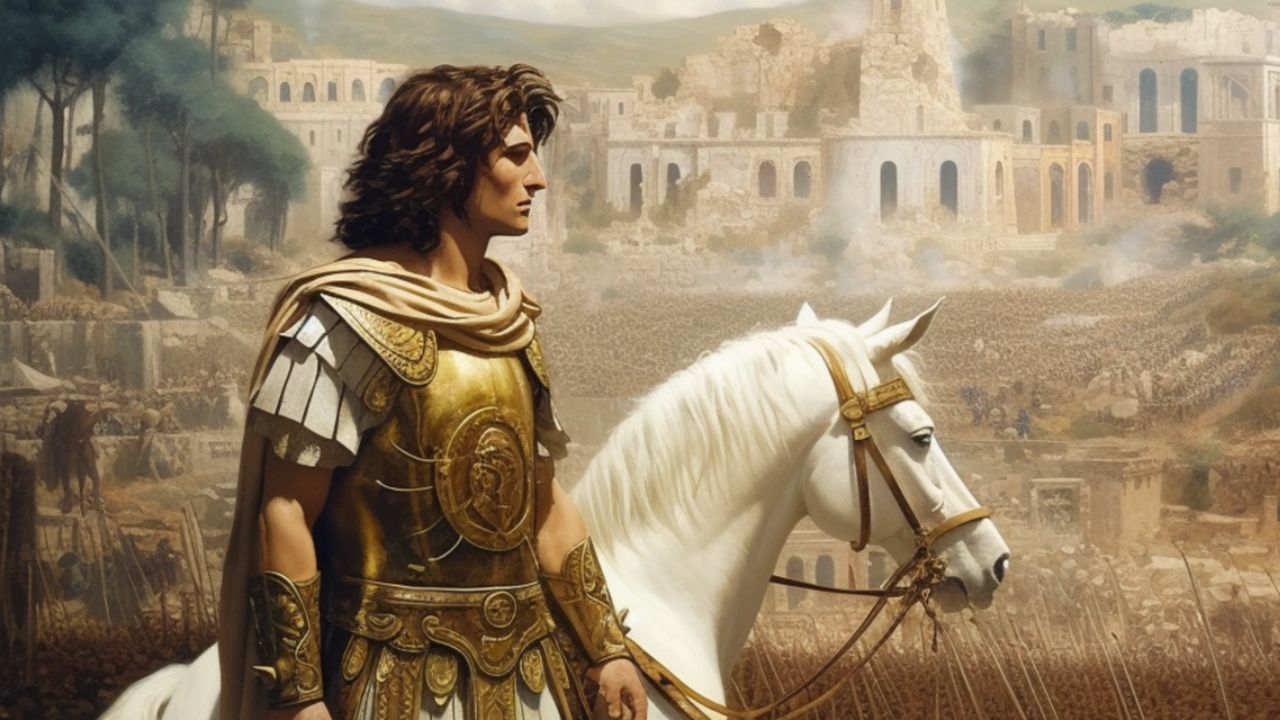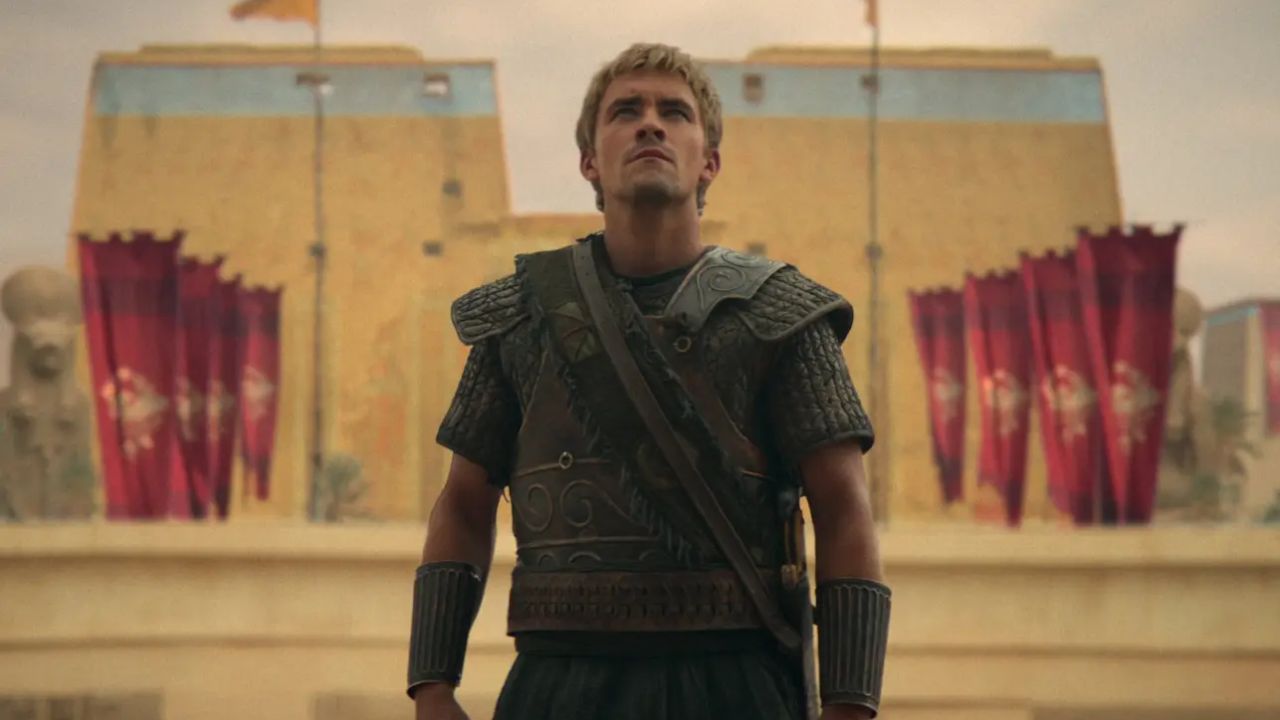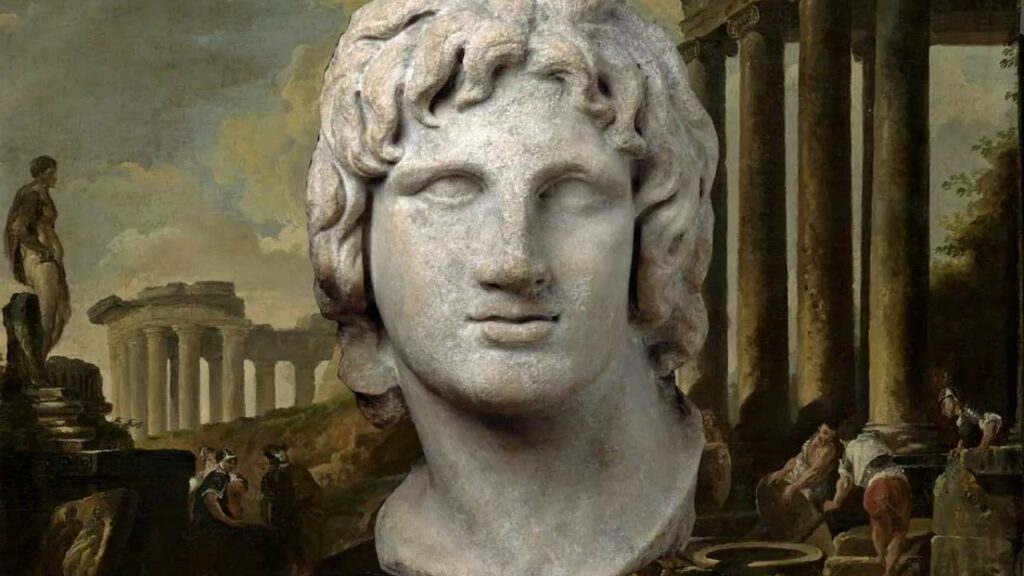blurred-reality.com – Whether or not Alexander the Great was a good person is subjective as his good and historical deeds come along with acts of brutality, hubris, and authoritarianism. Well, let’s have a quick look at his bright and dark sides.
Netflix‘s non-fiction genre continues to grow with interesting and informative documentaries. For everyone interested in history, the streamer recently wrapped up January 2024 with a new docu-drama on ancient Macedonian ruler Alexander the Great, which is currently streaming.
Alexander: The Making of a God is a six-part Netflix documentary series that combines historical facts and fresh information about Alexander the Great’s meteoric ascension with theatrical reenactments of his legendary life.
With the release of the docu-series, we have found that many people have been wanting to know if Alexander the Great was a good person since historians and scholars have different perspectives on his character. Well, here is our verdict on the subject.
Determining if Alexander the Great Was a Good Person With Some of His Brutal & Dark Acts!
Alexander the Great was only 32 years old when he died. In such a short period, his contribution had an impact on many people’s lives for many centuries. His first name is always joined by “the Great” for a reason. However, does this mean he was a good person?
Well, Alexander the Great provokes a wide range of ideas about whether he was a good or bad person. His conquests established one of history’s largest empires, spanning from Greece to Egypt and India. His strategic acumen and leadership abilities earned him the love and admiration of his troops, cementing his reputation as a formidable and successful commander.
The cultural significance of Alexander’s efforts cannot be emphasized; with his policy of syncretism, he tried to merge Greek and Persian civilizations, producing the Hellenistic civilization that left an indelible effect on history.
 Alexander the Great did more than enough to be labeled as a good person.
Alexander the Great did more than enough to be labeled as a good person.
Image Source: History Skills
However, his dark sides are just as striking. His victories are marked by acts of cruelty, such as the ruthless destruction of Thebes and the murder of his close friend Cleitus in a fit of drunken wrath. These actions call into question the morality of his authority and portray a bleak picture of a leader capable of taking drastic measures. Furthermore, his embrace of Persian practices, notably the problematic practice of proskynesis, caused strife within his own ranks and aroused eyebrows.
With Alexander’s belief in his own divinity, the distinction between praise and criticism becomes even more hazy. His arrogance and megalomania, as evidenced by his claims of godlike ancestry and expectation of celestial accolades, are unsettling to some. The ambition of total power and the authoritarian control imposed on conquered regions complicate the judgment of his character, with the label “tyrannical” coming up frequently among those who study his reign.
In conclusion, determining whether Alexander the Great was a “good” or “bad” person is a difficult and subjective task. His military triumphs and cultural contributions are juxtaposed with acts of brutality, hubris, and authoritarianism, forcing historians and researchers to navigate the nuances of his legacy and draw their conclusions about this intriguing historical person.
Times When Alexander the Great Wasn’t a Good Person!
It’s on you to determine whether Alexander the Great was a good or a bad person. However, we cannot forget that he had some reasons to be called a bad leader because of his history of high killing rate, lack of regard for his soldiers, and ineffective leadership.
 Many people criticize Alexander the Great for his dark side, including killing innocent people.
Many people criticize Alexander the Great for his dark side, including killing innocent people.
Image Source: Netflix
While Alexander the Great is admired for his military skill and the massive empire he established, certain aspects of his personality and conduct have caused some to label him as a “bad” person. Notably, his acts of cruelty during conquests, like as the savage sack of Thebes in 335 BCE and the assassination of his close ally Cleitus, cast a dark shadow over his leadership.
His dictatorial administration, which included imposing Macedonian officials on conquered territory without regard for local customs, sparked discontent and rebellion.
Furthermore, others saw Alexander’s conviction in his own divine status and the implementation of proskynesis as symptoms of hubris, calling into question traditional Greek principles of moderation and humility. The destruction of Persepolis, the Persian capital, is another contentious episode that raises questions about his objectives and techniques.
While acknowledging Alexander the Great’s military genius, critics refer to these incidents as proof of a darker side to his personality, producing a nuanced and diverse appraisal of his historical legacy.

